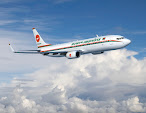It is in fact quite amazing that despite the global shocks, natural crisis, and local political instability, Bangladesh was able to maintain around 6 percent growth rate over the past few years.
The GDP growth of Bangladesh was 3percent in the 1970s, and increased by 1 percent on average every decade. The credit goes to government's efforts to control population growth, which has significantly declined over the years. The per capita GDP growth rate was 1.7 percentage points on average every decade.
Over the last three years, approximately 15 million people came out of absolute poverty due to the acceleration in the growth rate. Openness in the economy, financial deepening, macroeconomic stability and population control are some of the major reason Bangladesh experienced a steady growth over the years.
Bangladesh now targets to enter the middle-income country strata by 2021. A recent report by World Bank said that in order to attain the middle-income status, remittances and GDP growth would place a very important role. The report also mentioned that to achieve its goals, the remittance growth must sustain 8 percent and the GDP growth must accelerate to 7.5-8 percent throughout the next decade. If the country wants to achieve the middle-income country status within 2021, it must engage in more business than it usually does.
The country must enhance the growth of its manufacturing based exports in order to achieve a GDP growth rate of 7.5 or higher. Not only that, it must also overcome the problems that stand on its way including overburdened land, weak economic governance, poor port and transportation facilities, water, gas and power shortages. The major bottleneck to growth is its inadequate infrastructure, which needs to be urgently addressed.
The prime focus of Bangladesh should now be to accelerate its GDP growth to 7.5 – 8 percent and maintain an 8 percent remittance growth in order to fulfill its desire to enter the middle income country group by the end of the next decade. The private sector companies of Bangladesh are ready, working class is ready. Only the political situation has to back the momentum.
The GDP growth of Bangladesh was 3percent in the 1970s, and increased by 1 percent on average every decade. The credit goes to government's efforts to control population growth, which has significantly declined over the years. The per capita GDP growth rate was 1.7 percentage points on average every decade.
Over the last three years, approximately 15 million people came out of absolute poverty due to the acceleration in the growth rate. Openness in the economy, financial deepening, macroeconomic stability and population control are some of the major reason Bangladesh experienced a steady growth over the years.
Bangladesh now targets to enter the middle-income country strata by 2021. A recent report by World Bank said that in order to attain the middle-income status, remittances and GDP growth would place a very important role. The report also mentioned that to achieve its goals, the remittance growth must sustain 8 percent and the GDP growth must accelerate to 7.5-8 percent throughout the next decade. If the country wants to achieve the middle-income country status within 2021, it must engage in more business than it usually does.
The country must enhance the growth of its manufacturing based exports in order to achieve a GDP growth rate of 7.5 or higher. Not only that, it must also overcome the problems that stand on its way including overburdened land, weak economic governance, poor port and transportation facilities, water, gas and power shortages. The major bottleneck to growth is its inadequate infrastructure, which needs to be urgently addressed.
The prime focus of Bangladesh should now be to accelerate its GDP growth to 7.5 – 8 percent and maintain an 8 percent remittance growth in order to fulfill its desire to enter the middle income country group by the end of the next decade. The private sector companies of Bangladesh are ready, working class is ready. Only the political situation has to back the momentum.

Comments
Post a Comment